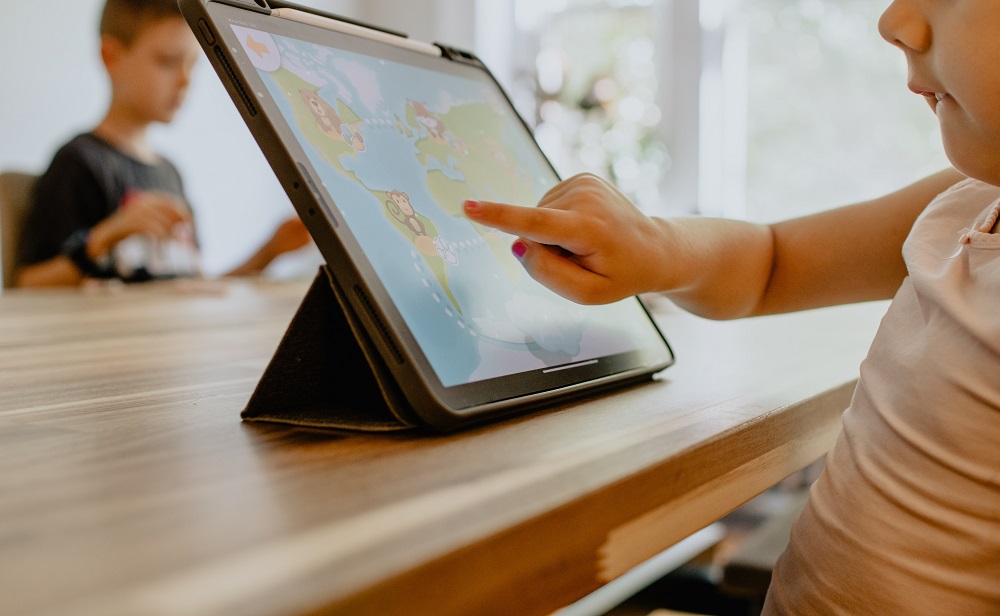This weekend brought yet more contradictions in the world of education. There were some much vaunted and welcomed initiatives, but alongside there comes a stark warning about their likely impact.
As Gavin Williamson, Secretary of State for Education announced a scheme to ensure vulnerable and at-risk families have access to technology to grasp its benefits, the BBC and Oak Academy launched their ambitious learning programmes and resources. A few hours later the Sutton Trust indicated that two thirds of children have not engaged with remote, online lessons.
How can such contrasting stories fill our airwaves and printed press? How can it be the case that so much is being invested in online resources and yet there is seemingly so little reward? There will be much review, much consideration and likely initiatives as a follow-up. But again, once this is all over will we be diverted from the unerring truths that are currently staring us in the face? Will we have the courage to address the real needs of schools and society at large.
Online resources to be welcomed – 30% of children have engaged with online learning
Make no mistake resources that are available through BBC Bitesize are a much-welcomed addition to the armory of teachers and to parents and their children. The contribution of Oak Academy is to be welcomed alongside the online resources free or paid-for offered by a variety of companies (including my own). And there are schools that will make great use of them. There are schools such as Barton Hill Academy whose transition to remote learning has been a success. Whose children are engaged and are online. And yet still the Sutton Trust’s warning rings alarm bells.
Provision also is only part of the story. Many schools undertake annual surveys to see what technology is available to families and we have seen over recent years the inexorable rise in access. Ofcom’s annual report tracks the changes and again shows the rise of both access and device ownership. Of course, it’s very easy to overlook the 28% of 8-11-year-olds that don’t use a tablet to go online or the 17% of 12-15-year-olds that don’t have a Smartphone. And the DfE’s initiative may close the gap a little. But there remains a disparity between access and those that have engaged with online learning. So, what will make a difference?
The role of the teacher
The answer is simple. What makes the difference is the teacher. Quite simply, education, teaching and learning is a social activity. The importance of the teacher in the early years of education is central to its success. Teachers don’t deliver content! They engage, they motivate, challenge, direct, encourage, intervene, step back, step in. They have knowledge and skills; wisdom for which we should have the utmost respect. They are professionals and they need to be supported with appropriate resources and with trust and respect for the work they do. Teachers who understand the technology, who know how to interact through it, who have the confidence are those who will engage the children.
Teachers have had the online tools at their disposal for many years, and yet in many schools the take up and use is limited or patchy at best. Some schools have allowed their provision to fall into limited usage, some have abandoned it altogether. But why? Quite simply, years of budget cuts and externally driven priorities have exhausted the profession. Their online provision is simply not part of day to day planning, is not used for effective collaboration and communication, doesn’t properly extend the teachers reach. The scramble for online provision, for resources was inevitable, but without the on-going prior use it was never likely to have the uptake required. As providers we have all seen the surge in online access, had to spin up additional capacity, but equally we know that levels of engagement have still not reached the levels required for our children to truly benefit from the opportunities that exist. It’s not too late of course, companies can support schools get online, can help with support and guidance even now. But for greater impact it needs to become embedded in practice.
Review and future planning
Once this present crisis is over there will be review. There will be action. But there needs to be a fundamental change in direction if we are to truly appreciate the gifts our teachers bring. Companies like my own need to continue to support schools by providing easy to use tools, but we need to recognise they are just that. We provide tools. Let’s not sell an unrealistic dream. Technology will not transform, it’s the people that use it that can. Schools need to ensure that they use the resources at their disposal, but for them to do so governance needs to change. Government needs to stop interfering in education. The DfE should step back from its initiative and dogma driven approach. Resources currently invested in initiatives or inspection should be diverted to schools. No longer do I wish to sit in meetings where the DfE announce that there are queues at photocopiers because teachers don’t have a culture of using professional resources. Give them the tools, give them the funding, but above all give them the respect they deserve. Please note this is not a party-political plea. I very much enjoyed the increased priority previous governments gave to education and particularly funding, but it came at the cost of increased interference. The interference has increased. It’s time to row back.
Properly resourced provision
At this time of crisis, the public have shown their appreciation for the NHS, for key workers, for teachers, shop workers, lorry-drivers, refuse collectors. Each Thursday evening, my entire street shows its appreciation and joins together as one (though socially distanced) to share that appreciation. But as my partner, who works in the local hospital says, she greatly appreciates the clap for key workers, but what they really want is the PPE, the ventilators and the staff to do the job properly. Schools are no different. Once this crisis is over let’s ensure schools are resourced properly, freed from constraint and allowed to get on with the job properly, then perhaps when the next lockdown comes they’ll not only have the online learning tools to hand, but a culture of use that ensures that more than 30% of children engage effectively and continue to learn.
More information about our EdTech products
For more information on our online learning platform, DB Primary, please visit our webpage or contact us for more information.

 Australia
Australia Canada
Canada LATAM
LATAM New Zealand
New Zealand UAE
UAE United States
United States








